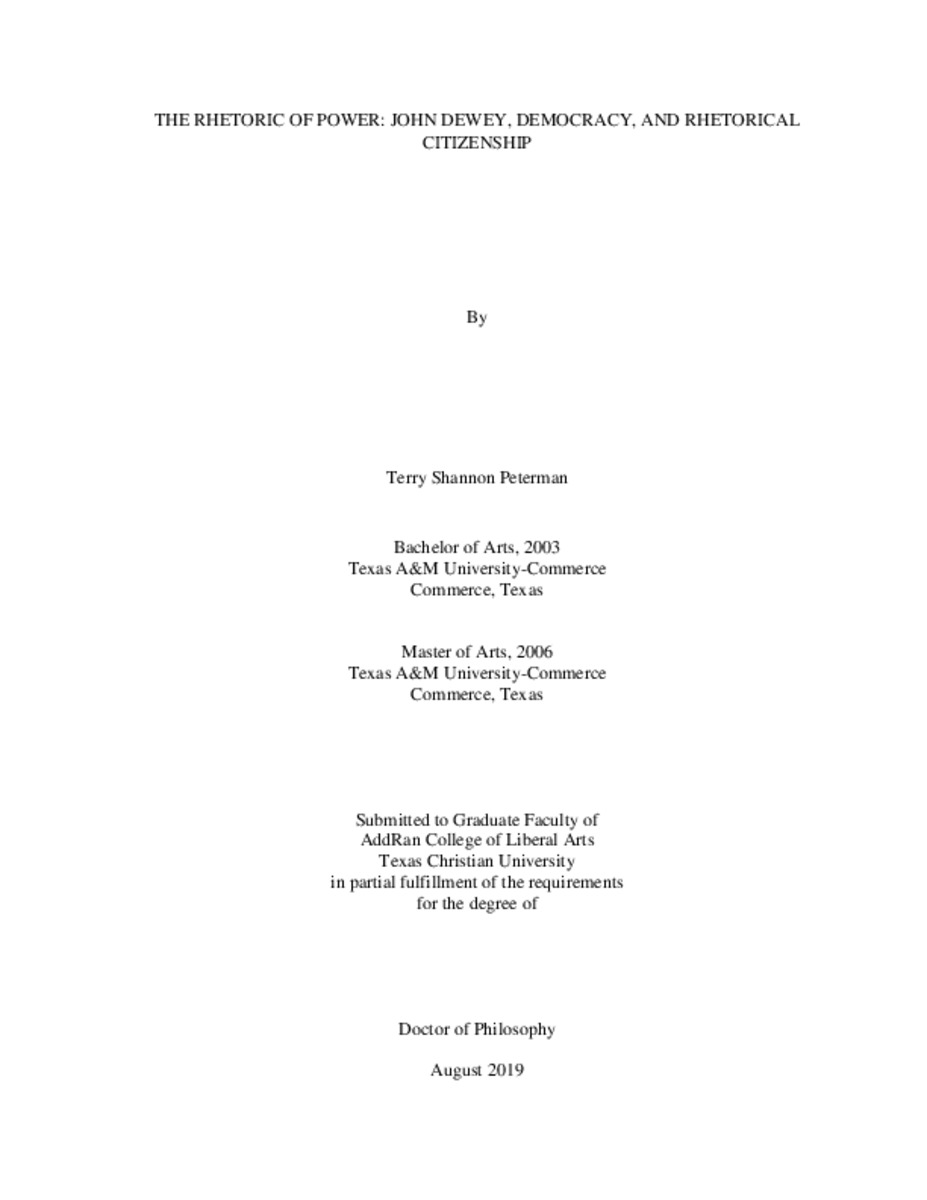The Rhetoric of Power: John Dewey, Democracy, and Rhetorical CitizenshipShow full item record
| Title | The Rhetoric of Power: John Dewey, Democracy, and Rhetorical Citizenship |
|---|---|
| Author | Peterman, Terry Shannon |
| Date | 2019 |
| Genre | Dissertation |
| Degree | Doctor of Philosophy |
| Abstract | This dissertation argues rhetorical citizenship is an underdeveloped pedagogical method needed to teach skills in civic literacy necessary to function as citizens in a democracy. Incorporating John Dewey¿s theory of participatory rhetoric, this work argues that Dewey has much to offer the field of Rhetoric and Composition in terms of understanding rhetoric¿s role in a post-modern technological democracy, and its possible benefits to the concept of rhetorical citizenship. This work also proposed ways the field could incorporate his theory of experiential learning through civic literacy as a core component of our Writing Program Outcomes Statement (WPA OS) so to address the growing civic literacy crisis in America. The concept of institutional rhetorics is derived from the field of organizational communication to examine how institutional knowledge is developed and transmitted via rhetorical documents such as the WPA OS. Institutional rhetorics can be used to manage knowledge-intensity to control the development of knowledge and stabilize (or destabilize) accepted forms of knowledge. In addition, this dissertation proposes a large scale theoretical shift in the teaching of FYC to incorporate methods of civic literacy predicated on rhetorical citizenship, and proposes sample outcomes that would radically realign the focus of FYC from teaching methods of composition toward a focus on teaching students to use the skills learned from these methods of composition toward the betterment of democracy in America. Each of the Chapters in this work has built toward a goal of examining how the field of Rhetoric and Composition conceptualizes our work in the civic arena to prepare students for life in a democracy. In addition, John Dewey¿s theory of democracy can help us better understand how to use rhetoric¿or artful communication meant to move citizens to action in Dewey¿s terms¿toward the communicative agency needed to build rhetorical publics and use inquiry to solve problems and thereby participate more fully in democracy. |
| Link | https://repository.tcu.edu/handle/116099117/26776 |
| Department | English |
| Advisor | Enos, Richard Leo |
Files in this item
This item appears in the following Collection(s)
- Doctoral Dissertations [1526]
© TCU Library 2015 | Contact Special Collections |
HTML Sitemap



